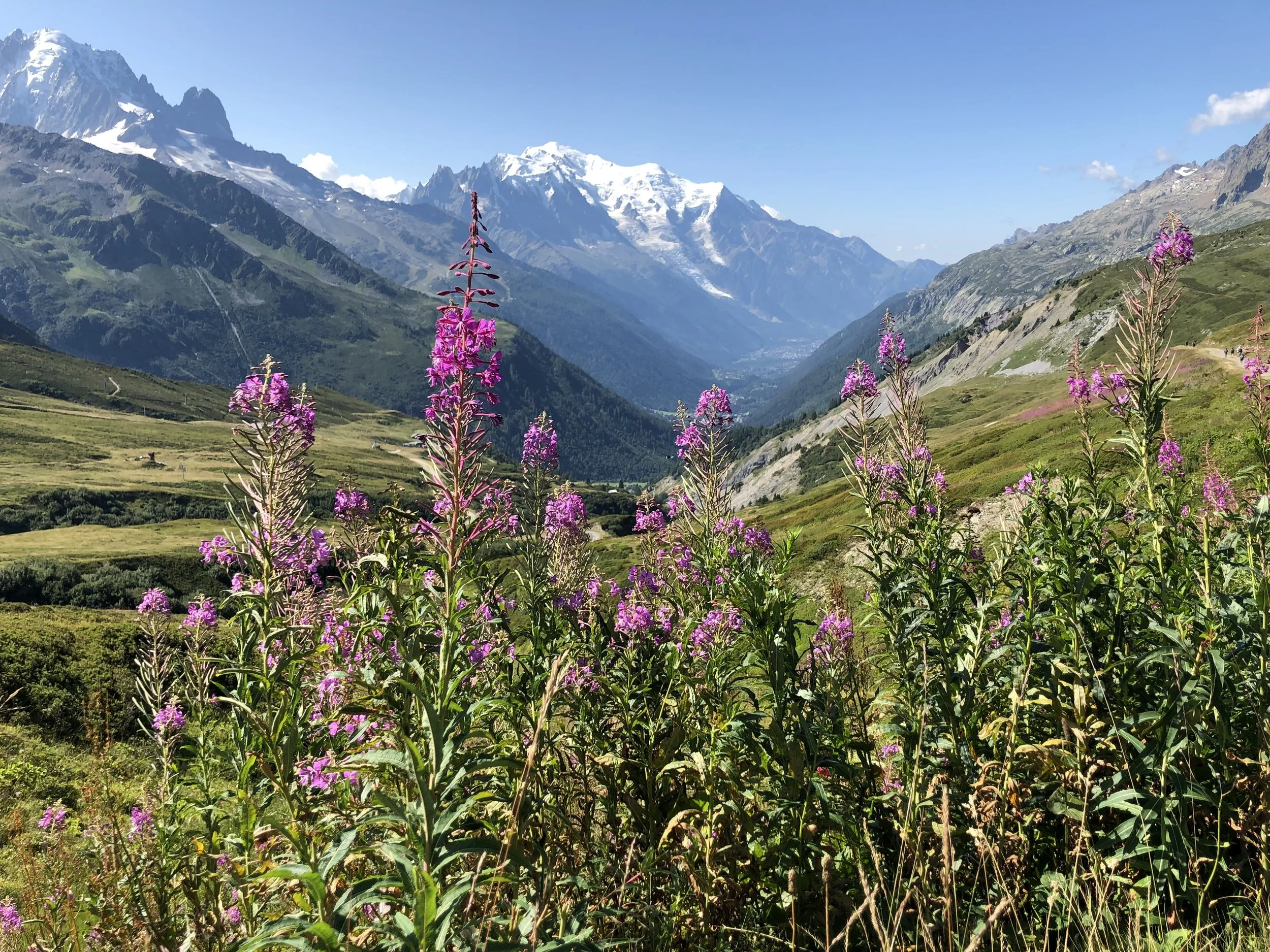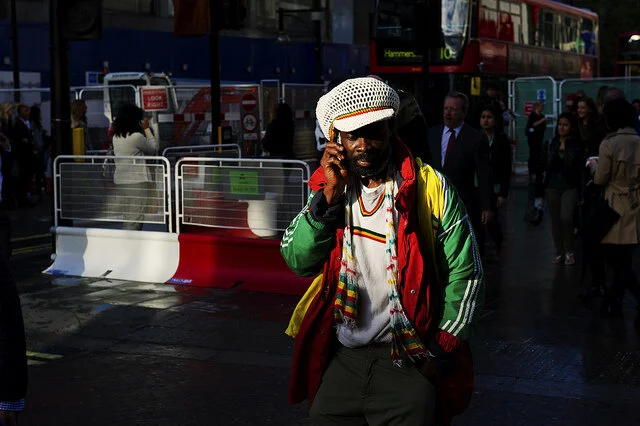Join Richard Collins on a journey through the Pyrenees as he reflects on encounters with elusive wildlife and contemplates the paradox of experiencing versus documenting moments. Delve into the tension between fully immersing oneself in an experience or capturing it from a removed vantage point.
All tagged Europe
Frozen on an Alp
At age sixty-four, Ellen Schecter signed up for a Tour du Mont Blanc hike despite her fear of heights. Pushing through nerves, she managed to trek along the steep and narrow trails, climb a ladder secured to the side of a mountain and cross a long swinging bridge high above a canyon. But it all came to a shuddering halt when she found herself petrified on all fours atop the rocky terrain. The mantra she had been repeating—“Feel the fear and do it anyway”—was no longer working.
Mauthausen Concentration Camp: Because turning away is never an option
Fyllis Hockman recalls a sobering visit to Austria’s Mauthausen concentration camp and why we should never forget.
Traveling the Side Roads
by Barbara Benjamin
People travel for many reasons: to get away from the routines of daily life; to face a new challenge, to see new sights, or just to kick back and relax. I travel to experience new cultures, to come away knowing what it is like, day by day, to live in a place I’ve never lived in before. So, when I travel, I always travel on the side roads. Rather than booking accommodations at a travel agent’s favorite resort or hotel, I often land in another country I’m visiting without reservations, and, speaking to the airport cab driver or questioning some locals I meet on the road, I find out where I can rent a house. Occasionally, I am able to find a house far away from the tourist areas that is advertised in my hometown newspaper or on the Internet, and I can book in advance.
words + photos by Rachel Dickinson
This summer while on a pilgrimage of sorts to Germany to see several Women’s World Cup soccer matches, I stumbled across something that kept me dipping into every cathedral in every town I visited. I discovered the appeal of the relic.
by Ellen Barone
[this is the final article in our SPOTLIGHT ON PORTUGAL series this week... ]
When the only vices of a place involve food and wine, booking a flight is a no-brainer according to my travel rules. Throw in sandy beaches, cultural riches, mild climate, a lost-in-time pace of life, and an inexpensive cost of living, and you won me over, Portugal.
On a recent visit to the northern wine country, I spent four delicious days table-hopping from hearty lunches, rustic meals featuring unpretentious fare and artisanal feasts prepared by innovative young chefs who bring a creative flare to traditional specialties. Each meal was paired with the region’s fresh, light, aromatic wines known collectively as Vinho Verdes.
 In Porto, the Confeitaria do Bolháo (Rua Formosa 339) proves it doesn’t have to be expensive to be good. I’d wandered into the café for an espresso and to sit out an afternoon rain shower. But I quickly upgraded my order to the meal of choice among the elderly patrons in wool caps and sturdy shoes who packed the place. “Yes, it’s fantastic”, said the waiter, when I asked to have what the couple at the table beside me were so obviously enjoying – a plentiful plate of crispy sardines, crusty bread, a delicious stew of red beans and rice and a carafe of robust red wine. Total bill: 7-euros. Nice.
In Porto, the Confeitaria do Bolháo (Rua Formosa 339) proves it doesn’t have to be expensive to be good. I’d wandered into the café for an espresso and to sit out an afternoon rain shower. But I quickly upgraded my order to the meal of choice among the elderly patrons in wool caps and sturdy shoes who packed the place. “Yes, it’s fantastic”, said the waiter, when I asked to have what the couple at the table beside me were so obviously enjoying – a plentiful plate of crispy sardines, crusty bread, a delicious stew of red beans and rice and a carafe of robust red wine. Total bill: 7-euros. Nice.
 A perfect example of the region’s rustic fare is Restaurante Páteo das Figueiras (Rua do Além 257), a homey establishment near Braga which serves exquisite local cuisine family-style in a simple and cozy room. The caldierada, a stew consisting of a variety of fish and shellfish with potatoes, tomato and onion, scooped up with a garlicky bread, was delicious.
A perfect example of the region’s rustic fare is Restaurante Páteo das Figueiras (Rua do Além 257), a homey establishment near Braga which serves exquisite local cuisine family-style in a simple and cozy room. The caldierada, a stew consisting of a variety of fish and shellfish with potatoes, tomato and onion, scooped up with a garlicky bread, was delicious.
by Judith Fein
[more from our SPOTLIGHT ON PORTUGAL series this week... ]
 photo by erin-thérèse via flickr (common license)Do you believe in miracles? How else can you account for what happened in a field in central Portugal on May 13, 1917, when three shepherd children saw a vision of the Virgin Mary? Purportedly, she told the awe-struck kids that she would appear at the same spot on the l3th of the five following consecutive months. According to believers, up to 70,000 witnesses beheld a miraculous apparition on the 13th day of the last month. Go to Fatima yourself to see if you are uplifted, transported, or merely interested. It’s about one and a half hours from Lisbon by train. The three children are buried in the sanctuary, and in one outdoor area the faithful light long beeswax candles that intertwine as they melt and carry prayers to heaven. Be sure to visit the museum, where Marians from around the world—including Pope John Paul—have left objects that are precious and significant to them. The latter even donated the bullet that was used by the man who tried to assassinate him. He believed that the Virgin of Fatima saved him.
photo by erin-thérèse via flickr (common license)Do you believe in miracles? How else can you account for what happened in a field in central Portugal on May 13, 1917, when three shepherd children saw a vision of the Virgin Mary? Purportedly, she told the awe-struck kids that she would appear at the same spot on the l3th of the five following consecutive months. According to believers, up to 70,000 witnesses beheld a miraculous apparition on the 13th day of the last month. Go to Fatima yourself to see if you are uplifted, transported, or merely interested. It’s about one and a half hours from Lisbon by train. The three children are buried in the sanctuary, and in one outdoor area the faithful light long beeswax candles that intertwine as they melt and carry prayers to heaven. Be sure to visit the museum, where Marians from around the world—including Pope John Paul—have left objects that are precious and significant to them. The latter even donated the bullet that was used by the man who tried to assassinate him. He believed that the Virgin of Fatima saved him.
Perhaps, while you’re in Portugal, you’ll want to find out about the secret Jews in the mountains of central Portugal who were forcibly converted to Catholicism during the Inquisition. After half a millennium of hiding their identity, they finally came out. In Belmonte, where a museum tells the story and shows the artifacts, you’ll be swept into a world where people clung to their religion in the face of great danger and, in the end, faith triumphed over oppression. There is also a synagogue, and you may be fortunate enough to meet some of the Belmonte Jews. When they decided to publicly claim their heritage and faith—about twenty years ago-- the story captivated people round the world, and now Belmonte is one of the top stops in the region for visitors of all religions.
[more from our SPOTLIGHT ON PORTUGAL series this week... ]
When I was a little boy, stories were told around the fireplace about ancestors who were Barons to the monarchy in Portugal and high magistrates to the Tudor monarchy. I always found this exciting and special. I was also a bit skeptical as there were no documents to this effect --only antique photos that could have been gathered at any antique store. Over the years, I made some cursory searches on the web and obtained information about my father and his parents' origin, but nothing was certain, and I had a fair amount of doubt because we are a family known for telling good yarns or, to put it more bluntly, having a proclivity for embellishment.
In September 2009, I decided to do further research on the Portuguese family story to determine where legend and fact intersected. I contacted the Portuguese diplomatic office in Providence, RI and was directed to the Portuguese Consulate in New York. After explaining my intent, I began to correspond with the most important contributor to this story, Miguel Carvalho. He was enthusiastic about my personal Portuguese project and we began to work with the scant information I had-- the surname Soares, the City of Porto and the legend of a family connection to the wine trade. Soon afterwards, I received an email from a history professor from Porto named Gaspar Pereira. He was generous with his research finding that, in 1780, there was a business concern called Soares & Irmao (brother) LLC, and that the business was comprised of two brothers-- Jacquin Manoel Soares and Jose Henrique Soares. Jose Henrique Soares was awarded peerage as the Baron of Ancede by Queen Maria II da Gloria in 1842.




